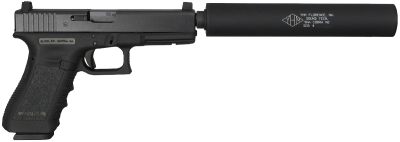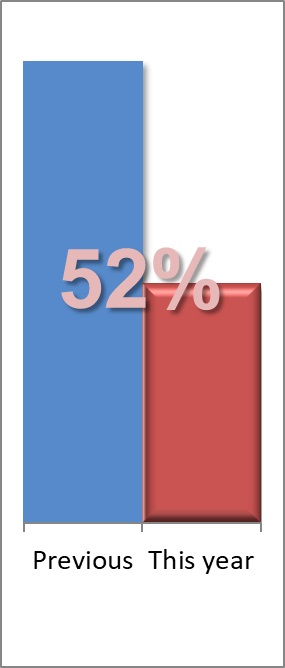Suppressed Insights
I wonder if I can buy a suppressor for the car stereo the teenaged kid across the street has. As best as I can tell, he not only has the loudest sound system since Woodstock, but he also possesses the worst taste in music of any human. It is a terrible combination.
Which brings us to the suddenly erupting debate over suppressors for firearms. Since I am not a firearms enthusiast, but as someone who dabbles in music, technology, engineering and other forms of mayhem, the rush to modify the regulatory and tax burden for obtaining firearm suppressors is interesting.
The propaganda backlash is sadly amusing.
A bit of background
Back in the early 20th century, when America had massive social upheavals – from bathtub gin to communist agitators – fear drove the creation of the National Firearms Act (NFA), America’s first federal brush with gun control. Knowing that the Second Amendment would not allow for the outright disarming of people, the NFA sought to make various firearms and components, perceived (rightly or wrongly) as being favored by radicals and criminals, to be unaffordable and difficult to obtain. This included machine guns, short barreled shotguns and rifles, explosives and suppressors. This was achieved by extracting a high tax every time one of these devices was transferred as well as enduring a lot of paperwork. {ED: An interesting side note. The infamous and always incorrectly cited Miller case was a tax evasion case because the defendant, a rum runner, did not pay the transfer tax for his sawed-off shotgun.}
Is this sound policy? It is if you believe Hollywood.
Suppressing “Silencer” Non-sense
There are no “silencers”. The historical origin of the term appears to be a firearm sound suppressor that used “silencer” as part of its brand name.
The fact is no firearm can be “silenced” and the pew-pew sounds you hear in movies is irrational (did you really believe that an industry based on fiction would accurately portray how firearms work). Suppressors, on the other hand, are real devices that reduce the sound pressure (perceived loudness) of a firearm.
But they do not quiet-down a gun enough to change its utility for crime.
How loud is a gun compared to a hysterical actress?
Guns are loud. Quite loud in fact. In a tidy laundry list of things that make noise, your average handgun is sneaking up on NASA rockets in terms of noise (having once worked at NASA, and having watched Space Shuttles launch from as close a distance as NASA would allow, I can attest that a high caliber revolver at close range can be obnoxiously loud compared to a space ship three miles away).
| Source | Decibels | Suppressed | Loudness |
| a pin dropping | 10 | 2 | |
| rustling leaves | 20 | 4 | |
| whisper | 30 | 8 | |
| computer | 40 | 16 | |
| refrigerator | 50 | 32 | |
| conversational speech | 60 | 64 | |
| dishwasher | 70 | 128 | |
| toilet flushing | 75 | 181 | |
| alarm clock | 80 | 256 | |
| passing diesel truck | 85 | 362 | |
| lawn mower | 90 | 512 | |
| food processor | 95 | 724 | |
| motorcycle | 100 | 1,024 | |
| rock band | 110 | 2,048 | |
| emergency vehicle siren | 115 | 2,896 | |
| thunderclap | 120 | 4,096 | |
| balloon popping | 125 | 5,793 | |
| air raid siren | 135 | 11,585 | |
| jet engine at takeoff | 140 | 16,384 | |
| firecracker | 145 | 23,170 | |
| .45 ACP handgun | 157 | 131 | 53,232 |
| 9mm handgun | 160 | 126 | 65,536 |
| shotgun | 160 | 137 | 92,682 |
| .357 magnum revolver | 165 | N/A | 92,682 |
| howitzer cannon | 175 | 185,364 | |
| rocket launch | 180 | 262,144 |
The chart to the right lists some common noises. The typical decibel level (a measure of sound pressure – the sonic push against your ear drum) for each is included. However, the physics of sound and how humans perceive its loudness are different. Using a handy decibel/loudness calculator, I added the human perception of just how bloody loud things are.
The calculator could not translate how loud the neighbor kid’s car stereo is. It apparently involves hyper mathematics and produces numbers too large for computer displays.
I also borrowed data on suppressors from a number of vendors to show how little changes when you add a suppressor to a common handgun. Several things are important to note:
- Suppressors don’t reduce decibel levels much. On average, between 20-35 decibels.
- When the second favorite handgun for street criminals (the 9mm) is suppressed, it is about as loud as a balloon popping, which given the startled expressions of people at New Year’s Eve parties, is plenty loud. Larger caliber firearms with suppressors range in loudness between air raid sirens and jet aircraft.
{ED: Before any gun enthusiasts get technical with us, yes you can suppress revolvers. But it is more difficult and uncommon, so we flagged it as N/A for the sake of simplifying the policy discussion}
Ever see a street gang member with a suppressor?
The policy question then is why suppressors should be suppressed. What is the public goal in making it (more) expensive and tedious to obtain them?
It does not change crime prevention or investigation
The reduction in noise is insignificant enough to not matter to law enforcement. This is due to how citizens hear, perceive and react to noises … especially in different social regions.
We know from empirical data that most gun crimes occur in the inner cities. The social norms in gang turf are wildly different than in the suburbs. A gunshot in a rough neighborhood may go unreported. a slightly quieter one would as well. Suppressors also make no difference in crime investigations since the perceived loudness of a gunshot doesn’t help determine who the shooter was, from which direction the gunfire came, etc.
Suppressors are inconvenient for criminals
Without going into the physics behind suppressors, note that a suppressor has to be relatively large and heavy.
 In most cases with handguns (the firearm of choice for criminals) the suppressor doubles the length of the handgun. Criminals rely on concealing their guns, and anything that makes this more difficult is undesirable. Since the average street thug isn’t bothered by his odds of being arrested and incarcerated for shooting someone, a suppressor simply makes his job harder by making concealing his gun impossible.
In most cases with handguns (the firearm of choice for criminals) the suppressor doubles the length of the handgun. Criminals rely on concealing their guns, and anything that makes this more difficult is undesirable. Since the average street thug isn’t bothered by his odds of being arrested and incarcerated for shooting someone, a suppressor simply makes his job harder by making concealing his gun impossible.
Suppressors are not lightweight either. A common 9mm handgun, say the Glock 17, weighs 1.4 pounds. A common suppressor for a 9mm handgun weighs slightly more than a pound. The effect of adding a suppressor to a pistol is to make it twice as heavy, twice as long, and thus one fourth as useful to a common criminal.
You need to rob a bank to buy one
Prices of suppressors vary, but I grabbed a catalog from one vendor who several gun enthusiasts told me was typical. They charge between $870 and $1,000 for a suppressor. Various reports say that black market 9mm handguns go for $150 or less on the streets. Even if the cost of a black-market suppressor was cut in half, that means a crook would pay three times as much to make his handgun a little quieter (and a lot heavier, and a lot less concealable).
So, who really wants these long, heavy, expensive things?
In two words, hobbyists and hunters.
For some people, guns are their weekend activity. It is not at all uncommon for a pistol shooter to fire 1,000 rounds of ammunition in an afternoon as they polish their skills. Even wearing hearing protection, the repeated, up-close concussive force of a gun being fired can add to cumulative hearing loss. A sports shooter may benefit – health wise – by adding a suppressor.
Hunting is an interesting situation you need to read more about to understand. A suppressed rifle isn’t quiet … up close. At the distance from the hunter to the deer, and perhaps more importantly to the other deer off in the woods, it matters a lot.
The loudness of anything – except perhaps the neighbor’s kid’s car stereo – dissipates over distance. The further away the deer is from a gun, the less loud the gunshot will sound. Sound levels decrease by 6 dB every time the distance is doubled. Since some hunters take deer from two football fields away or more, this is important to the hunter (not so much to the deer). A common hunting rifle (30-06 caliber) will still produce about 112 decibels of sound (louder than a rock band) as the deer hears it two football fields away. With a suppressor, it would be less than 90 decibels (quieter than a passing diesel truck). Other deer, a bit further into the woods might not hear a thing, making them new targets for a hunter if his first target is missed.
The non-problem
Any law has to serve a purpose, or it becomes a mere burden to taxpayers and citizens alike. Since common criminals don’t want suppressors, then the existing laws seem to have no bearing on crime (professional hitmen might want suppressors, but if they do, they likely can get them with ease). Since the current law does nothing to reduce crime, then it only hinders sportsmen and women.
Clearly, it is time to rethink and re-legislate.


Europeans use suppressors to keep the noise down for the neighbors. Europeans also think the Americans are silly for not using suppressors.